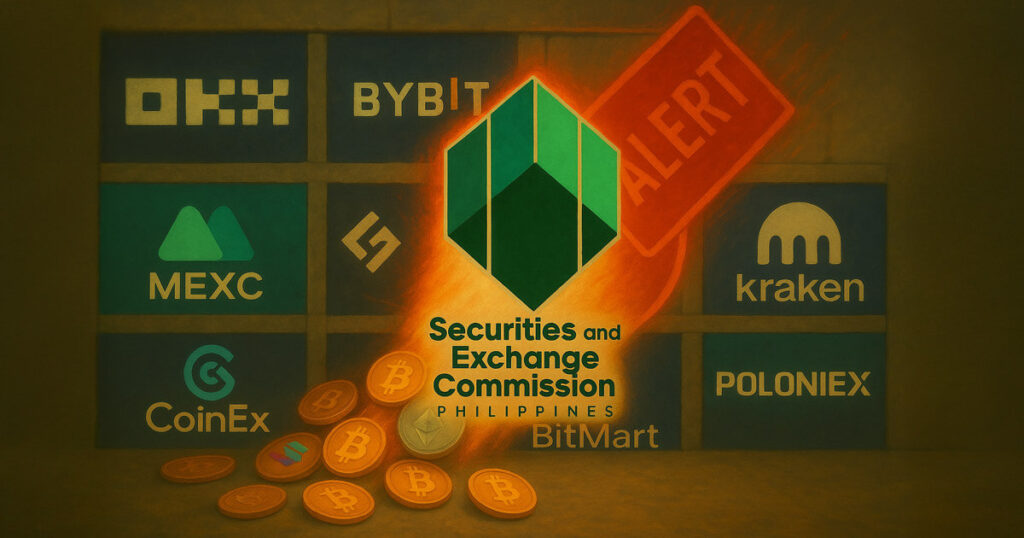The Philippine Securities and Exchange Commission (SEC) has recently issued a warning against ten prominent cryptocurrency exchanges operating in the country without the necessary approval. Among the flagged exchanges are OKX, Bybit, KuCoin, and Bitget, urging residents to steer clear of these unregistered platforms.
In its public advisory on August 4, the SEC emphasized the risks associated with engaging with these unlicensed exchanges. The regulator highlighted the potential for financial losses, fraud, market manipulation, and identity theft that users could face by interacting with these platforms. Moreover, concerns were raised about the exchanges being used for illicit activities such as money laundering and terrorist financing.
The SEC’s move comes as the Philippines emerges as a key player in the global cryptocurrency landscape, as noted in a recent Chainalysis report. The regulator’s decision to block access to Binance’s website in the country further underscores its commitment to cracking down on unauthorized crypto activities.
In response to these unauthorized exchanges, the SEC is exploring more stringent measures, including cease-and-desist orders, criminal complaints, and collaboration with major tech companies like Google, Apple, Meta, and TikTok. This proactive stance aligns with a broader trend in Asia, where regulatory authorities are ramping up efforts to tighten control over cryptocurrency platforms.
As the cryptocurrency industry continues to evolve, it is crucial for users to exercise caution and conduct due diligence before engaging with any crypto exchange. By staying informed and adhering to regulatory guidelines, individuals can protect themselves from potential risks and ensure a safe and secure trading experience in the digital asset space.

